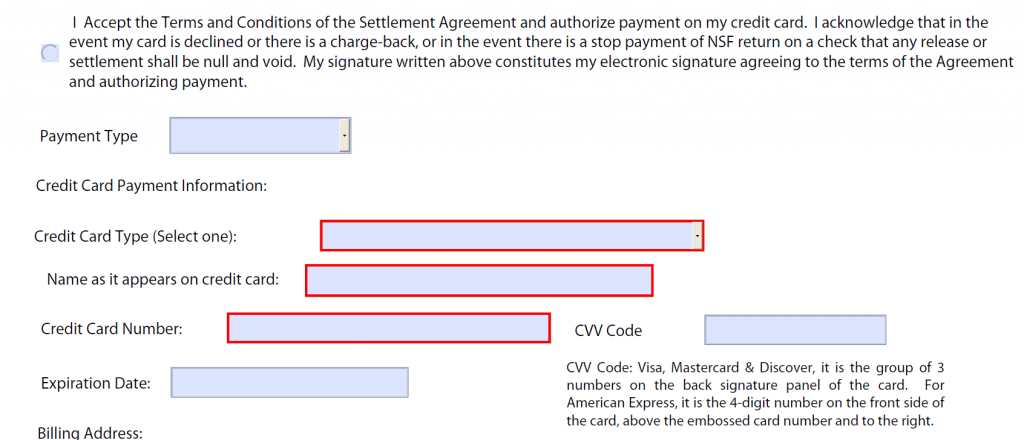The maneuvering over Apple’s leaked iPhone prototype continues behind the scenes even after the story itself has become yesterday’s news. Taking time out from our usual coverage, the intrigue surrounding the iPhone leak caper is worth pondering.
For the players directly involved, the legal expenses continue to mount. On Friday, a San Mateo, California county judge ordered the release of the search warrant (and its supporting affidavit) that led to the seizure of equipment at the home of a Gizmodo reporter who broke the story of the prototype-iPhone-gone-missing.
The documents are a fascinating read into a drama ready-made for a first season episode of the forthcoming Law & Order: Los Angeles.
The Players
Apple Engineer Robert “Gray” Powell — There’s No App to Fix This
The hapless victim. On March 25th, his life would change after leaving a prototype Apple iPhone behind at the Gourmet Haus Staudt restaurant in Redwood City, California. This would be slightly more stressful for him than if you or I left our keys or cell phone at a restaurant. It was, after all, a product from one of the world’s most secretive tech companies — Apple.
But who hasn’t left a phone, keys, glasses, or some other personal property behind in a public place at one time or another?

The party is over for Brian Hogan, who celebrated his "find" by starting a bidding war netting him $5,000, and the attention of the San Mateo police
Brian Hogan — The Guy You Don’t Want Finding Your Lost Cat: He’d Sell Chairman Meow on eBay
Unfortunately for Powell, the guy who found his missing phone was the less-than-honorable Brian Hogan, 21.
According to the affidavit, the story of what happened next comes from his roommate Katherine Martinson:
Martinson said [Hogan] told her he found an iPhone while visiting the restaurant. Hogan told her that he was drinking with friends when an intoxicated male tried to give him an iPhone that was left on a stool, incorrectly believing it belonged to Hogan. Hogan told Martinson he remained at the bar “a little longer,” but no one claimed the phone.
Let’s stop at this point at ponder what Hogan’s options were.
- He could have told the intoxicated individual the phone did not belong to him and to give it to a restaurant employee to secure.
- He could have turned the phone in before leaving when nobody claimed it.
Did he do either? No.
According to the affidavit, he instead took the phone home with him and began playing with it.
But Hogan was less interested in ascertaining the ownership of the phone than he was discovering the phone’s apparent secrets, evident from a new forward-facing camera. The following afternoon, Hogan was trying to impress Martinson with his technical knowledge — this was no ordinary iPhone he told her. The night before, Hogan learned the phone’s true owner was Powell, whose Facebook page was on the phone.
By then, the phone had stopped working and both believed Apple had remotely wiped out the contents of the phone and disabled it. Why would Powell have a prototype iPhone they pondered.
They both began searching for more information about who Powell was, quickly discovering from his LinkedIn page that he was an Apple engineer.
Confident that he now possessed a goldmine, the affidavit notes Hogan began a bidding war between Gizmodo, Engadget, and PC World over who would pay him the most to own what police officials would soon describe as “stolen property.”
Katherine Martinson: The Roomate That Thought Twice

Gizmodo took pictures of their acquired iPhone prototype
The police document states that Gizmodo’s Jason Chen offered Hogan $10,000 for the phone, a fact that stunned Martinson. As a deal appeared imminent, Martinson decided the entire affair had some real world consequences and began urging Hogan to drop the plan.
Martinson and several of Hogan’s friends urged him not to proceed because it would ultimately “ruin (Powell’s) career.” Hogan was unimpressed with those arguments.
According to Martinson:
Hogan’s response was, “Sucks for him. He lost his phone. Shouldn’t have lost his phone.”
Martinson said Hogan later showed her a camera box stuffed with $5,000 in $100 Treasury bills. He claimed an additional bonus would be forthcoming if and when Apple released the next iPhone.
Martinson, confronted with a roommate showing her a wad of money stuffed clandestinely into a box, decided that was the last straw.
Earlier, she had learned Hogan connected the prototype iPhone to her computer without permission. Martinson was convinced that action would eventually allow Apple to track their missing phone back to her, based on her Internet connection’s IP address.
Martinson called Apple’s director of Information Security, Rick Orloff. She wanted to clear the air, in part to protect herself from being considered an accomplice in the scheme.
When Hogan got wind of the investigation, the affidavit alleges, both he and his other roommate Thomas Warner are alleged to have started removing evidence from their residence, reportedly to dispose of it. Martinson phoned the detective who was preparing to serve a search warrant on their home to inform him of the hasty retreat to remove potentially incriminating evidence.
Police would later discover evidence scattered across the area, ranging from Hogan’s computer left in front of an office door at an area church, flash memory cards thrown into bushes, and an iPhone identification sticker found at a gas station parking lot.
 Gizmodo: Is Buying Stolen Property for a Story Journalism?
Gizmodo: Is Buying Stolen Property for a Story Journalism?
The story of Apple’s newest iPhone was broken by Gizmodo April 19th in a story that didn’t explain to readers they paid a hefty finder’s fee to Hogan after the bidding ended.
Even in an accompanying article explaining the “find,” only after Gizmodo’s parent company Gawker exposed the payment did they tell readers a $5,000 payment made it all possible.
Pundits and journalism experts questioned the propriety of Gawker’s methods. Denton has acknowledged that he agreed to pay US$5,000 to the person who possessed the phone after it was reportedly lost in a San Francisco Bay Area bar by an Apple employee. One publication has even noted that Gawker may have violated California laws on the buying of “stolen property.”
Denton acknowledges paying for the phone, knowing that he knew the person he was handing the money to wasn’t the owner. “That’s what the media ethicists are focused on,” Denton told CNET. “Most of the readers are either excited about the new iPhone or angry on behalf of the unfortunate Gray Powell [the Apple employee who Gizmodo said lost the phone].”
The journalism experts appear to be right.
There are some open questions about the propriety of the entire transaction, but documents released Friday also expose some additional questions about whether or not Gizmodo maintains a firewall between itself and the subjects and companies it writes about.
Included in the revealing documents were two e-mails represented as originating from Gizmodo’s own staff.
Brian Lam, editorial director, actually appears to be suggesting media strategies to Apple’s Steve Jobs about how to handle the inconvenient revelation about the prototype iPhone, a basic Journalism 101 no-no. He even writes that Apple’s PR department had given Gizmodo the cold shoulder recently, and that hurt his ability to report on the company. While not directly appealing for a quid-pro-quo, it absolutely raises ethical eyebrows when an editor complains about access while also negotiating the return of a stolen prototype iPhone, a product of what he calls “very aggressive” reporting.
Some excerpts:
- “Maybe Apple can say it’s a lost phone, but not one you’ve confirmed for production — that it is merely a test unit of sorts.”
- “Gizmodo lives or dies like many small companies do. We don’t have access, or when we do, we get it taken away.”
- “Right now we have nothing to lose. The this is, Apple PR has been cold to us lately. It affected my ability to do my job right at iPad launch. So we had to go outside and find our stories like this one, very aggressively.”
- “I want to not hurt your sales when the products themselves deserve love.”
- “I want to work closer with Apple, too.”
Law enforcement did not consider Gizmodo’s exclusive revelations the online equivalent of 60 Minutes. San Mateo police promptly served a search warrant on Gizmodo’s Jason Chen, indicating there was evidence to believe he possessed property gained from the commission of a felony, and that he purchased stolen property, which was subsequently damaged.
 A search warrant executed April 23rd resulted in the seizure of 22 items at Chen’s home, mostly computer related.
A search warrant executed April 23rd resulted in the seizure of 22 items at Chen’s home, mostly computer related.
Apple’s Legal Team Begins Adding Up the Damages
Meanwhile, Apple’s legal team commenced their strategy to suggest the premature release of information about the next generation iPhone seriously wounded Apple.
George Riley, a lawyer from the O’Melveny and Myers, which represents Apple:
By publishing details about the phone and its features, sales of current Apple products are hurt wherein people that would have otherwise purchased a currently existing Apple product would wait for the next item to be released, thereby hurting overall sales and negatively affecting Apple’s earnings.
When asked to assign a dollar figure to Apple’s losses, Riley said he couldn’t, but it “was huge.” When asked if the stolen iPhone was worth at least $8,500, Riley told investigators it was.
Of course, the costs in lost PR from the forthcoming Steve Jobs’ media splash introducing the newest iPhone probably hurt most of all.
Apple will survive this drama. But the affair suggests that new media needs to consider the ethical implications of paying for news and readers deserve to know the details along the way.
[flv width=”600″ height=”358″]http://www.phillipdampier.com/video/KGO San Francisco Apple iPhone Caper April-May 2010.flv[/flv]
KGO-TV in San Francisco ran the most comprehensive coverage over the course of the entire iPhone caper. In this video, running 18 minutes:
- Pictures of purported next-gen iPhone reach Web (4-20-2010)
- What iPhone prototype bar snafu means for Apple (4-20-2010)
- Exposing next-gen iPhone online leads to investigation (4-27-10)
- Apple IDs person who found iPhone prototype (4-28-10)
- Young man who found lost iPhone has regrets (4-30-10)
- Another iPhone prototype surfaces (5-12-10)
- Judge unseals warrant in lost iPhone investigation (5-14-10)
See more video below the jump.
… Continue Reading
 Customers of Vistabeam in Nebraska and Wyoming who subscribe to the company’s rural Wireless Internet Service are about to discover their online activities are about to be capped… for real this time.
Customers of Vistabeam in Nebraska and Wyoming who subscribe to the company’s rural Wireless Internet Service are about to discover their online activities are about to be capped… for real this time.

 Subscribe
Subscribe










